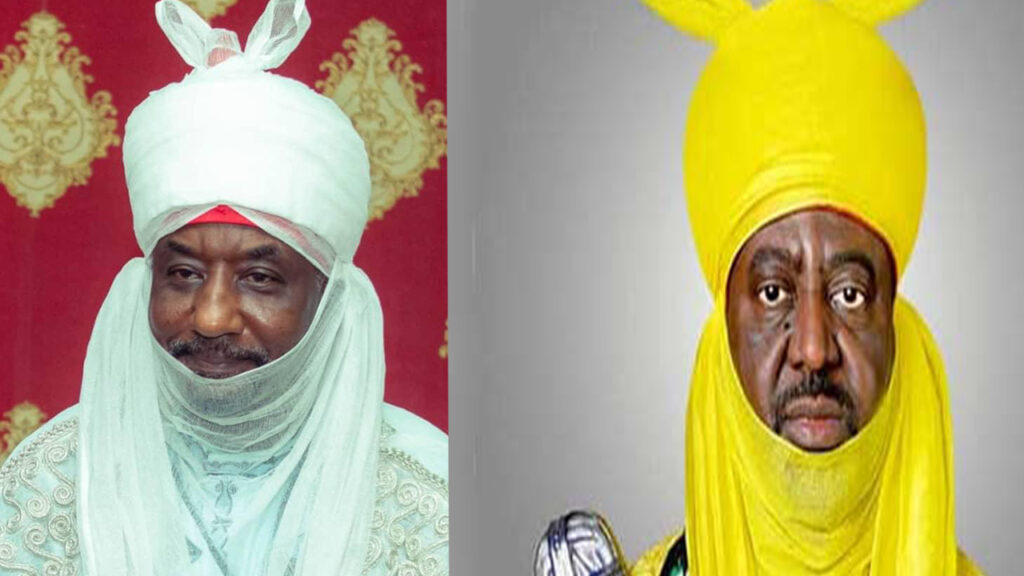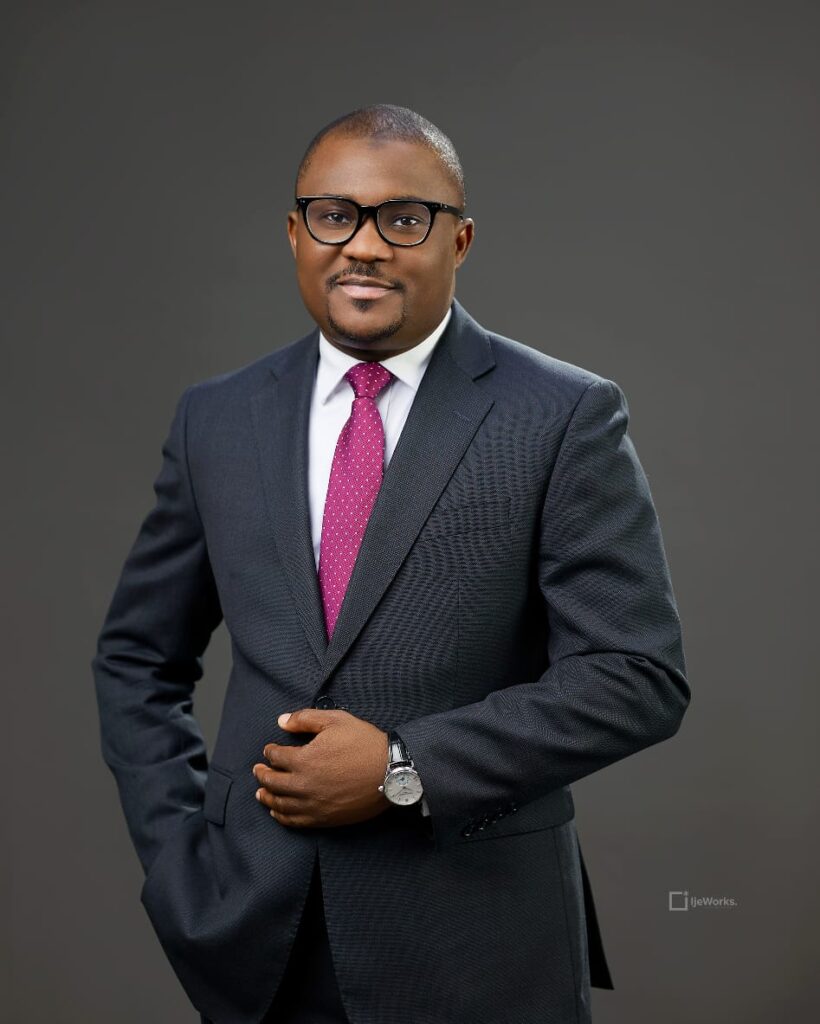
Despite calls for the probe of the Executive Secretary of the Tertiary Education Trust Fund (TETFund), Sonny Echono, stakeholders in the education sector have continued to laud his various reforms and how he has repositioned the agency, IYABO LAWAL writes.
The funding of public institutions has long emerged as a critical challenge to the promotion of good tertiary education, maintenance of physical infrastructure, training of lecturers as well as research and innovation, among others. Higher institutions in the country have often resorted to strike actions to press home their demands for better working conditions and funding of education.
The seeds of Academic Staff Union of Nigerian Universities (ASUU) strikes were sown in 1981 when the first agreement with the Federal Government was signed with a plan to review it after three years. However, this was not fully implemented leading to the subsequent series of strikes and other agreements in 1992, 1999, 2001 and 2009, among others.
To address the problem of funding, the Tertiary Education Trust Fund (TETFund) was established as an interventionist agency under the TETFund ACT 2011. The Act repealed the Education Tax Act Cap. E4, Laws of the Federation of Nigeria, 2004 and Education Tax Fund Act No. 17, 2003, which were the enabling legal foundations for ETF (TETFund, 2017).
Its areas of intervention include sponsorship of lecturers for postgraduate studies, funding constructions and refurbishment of educational facilities, promoting creative and innovative approach to learning; provision of higher educational books and funding of libraries and provision of learning equipment.
TETFund was established at a time when the education sector at the tertiary level had suffered many years of neglect by successive governments.
According to the guidelines for accessing TETFund interventions funds, it is “mandated to administer, manage and disburse the two per cent education tax collected from registered companies in Nigeria for the primary purpose of providing auxiliary support for the general improvement of education in public tertiary institutions.
Beneficiaries of the funds have to use it properly for rehabilitation, restoration and consolidation of education infrastructure and facilities, and other learning resources, including manpower, libraries and laboratories, amongst others.
To access the funds, institutions that had previously benefited from the Fund are required to render a satisfactory and credible account of previous funding as a yardstick to qualify for more funding. This is to ensure the development of the educational sector, with specific focus on public tertiary institutions.
Despite efforts by the government, funding has remained a critical challenge as expectations from TETfund continue to grow. The demand for more facilities, equipment, structures, training and many others, tend to increase as more public tertiary institutions are established by both the state and federal governments. This is a major challenge that TETfund, as an interventionist agency, has to confront in its quest to ensure the achievement of quality education in Nigeria in the 21st century.
And since Sonny Echono was appointed as Executive Secretary of the agency in March 2022 by former President Muhammadu Buhari, the astute administrator has provided qualitative, transparent and accountable leadership .
Echono had assured that his administration would build on the solid foundation that has already been laid, especially in the area of promoting content development, research and development (R&D).
Just like his predecessor, Prof. Suleiman Bogoro, Echono stressed the need to build a symbiotic relationship between the industry and academia to ensure seamless production of manpower needed to drive the nation’s economy and even produce in excess for export to other countries. He expressed commitment to upholding and entrenching tenets of accountability and transparency, through introduction of innovative policies and reforms aimed at improving efficiency.
In demonstration of his resolve to enhance positive changes in the agency, the executive secretary started by initiating reforms, which include curriculum review, skill acquisition and entrepreneurship, advancement of Information and Communication Technology (ICT) as well as deepening research, development and innovation.
Others are provision of funds for capacity building of lecturers to equip them with requisite skills for entrepreneurial and research studies in digital technologies and prepare Nigerian students for global competitiveness, with the end goal of building a knowledge economy and increasing the country’s global presence.
In consonance with its statutory role of managing education tax funds in supporting projects and capacity building for public tertiary institutions, TETFund, under Echono, sponsored a research on the newly designed smart climate information services for early warning on climate change for farmers with about 1, 500 from 70 villages across six states receiving training on the innovation.
Within a year of Echono’s leadership of TETFund, the agency allotted funds ranging from N300 to N600 billion to federal and state higher institutions as part of efforts to end incessant strikes and enhance their viability. He also endorsed the anti-plagiarism test developed by the Committee of Vice Chancellors of Nigerian Universities (CVCNU) to address the rising cases of plagiarism among the academic community.
The executive secretary also initiated partnerships with notable institutions, including University of Brazil, Vicosa, on tuition-free agreements for training of more Nigerian professionals in agriculture; transnational cooperation with the government of Britain, Forum for Agricultural Research in Africa (FARA), Nigerian Economic Summit Group (NESG) and African Union (AU). The agency, also signed a memorandum of understanding with the University of Sussex for the development of tertiary education in Nigeria, and a partnership agreement with the European Union (EU) on research, development and innovation at Brussels, aimed at articulating new strategies to reinforce existing efforts of the government at improving the country’s standard of education.
Internally, the seasoned administrator executed a review of the operating procedures of the agency, operationalised the zonal offices with delegated functions and set targets for all departments and standing committees. The Fund also unveiled a group of 71 academics, selected across the nation’s tertiary institutions, to undertake research in various fields under TETFund Alliance for Innovative Research (TETFAIR).
The agency also recently commenced the employability benchmarking programme in Nigeria’s tertiary institutions in active collaboration with the International Finance Corporation (IFC) and other partners, as a way of tackling the composite challenges of unemployment (33 per cent); youth unemployment (42.5 per cent) and youth underemployment (21 per cent), according to data from the National Bureau of Statistics (NBS).
Echono noted that the reforms within the agency have eliminated the use of vendors and contractors for academic and professional staff training interventions. He insisted that vendors and contractors were unnecessary in the content component of TETFund’s interventions .
“Hence, the agency now employs Memorandum of Understanding (MoUs), which are cost-effective, flexible and ensure efficiency in service delivery,” he said.
Although he noted that the reforms were met with opposition from those “vested in the old system,” the executive secretary expressed satisfaction that billions of taxpayers’ money had been saved by cutting out middlemen.
However, there are concerns over the actions of the executive secretary and the reforms being carried out in the agency, as some groups have called on anti-corruption agencies to beam their searchlight on Echono and the agency over allegations of financial impropriety.
An aggrieved group, identified as New Nigeria Movement, has called on the Independent Corrupt Practices and Other Related Offences Commission (ICPC) to investigate Echono over alleged employment racketeering and corruption. The group, in the petition signed by one Abah Okorie, demanded that the executive secretary should “account for all funds received and how they were disbursed since his coming into the Fund.”
In the same vein, a group, Lawyers United Against Corruption (LUAC), accused Echono of corruption and contract racketeering and demanded his resignation. The group later apologised to the executive secretary, saying it had become clearer that the allegations against the TETFund boss were concocted and circulated by some unscrupulous individuals as part of a smear campaign to truncate Echono’s tenure for selfish gains.
The latest allegation is that the agency awarded about N7.6 billion questionable contracts, thereby usurping the powers of the Federal Executive Council (FEC) and acting outside its mandate in carrying out capacity building programmes in its beneficiary institutions.
Specifically, the Human and Environmental Development Agenda (HEDA) has petitioned the Economic and Financial Crimes Commission (EFCC) over alleged graft in the agency under the headship of Echono.
HEDA expressed concerns over the award of contracts in foreign currency by TETFund, alleging that 85 per cent of the contract sum has been paid without evidence of work done. It argued that TETFund’s contract award is a violation of the Public Procurement Act, which requires competitive bidding and FEC approval for contracts above N3 billion.
But the agency clarified that the two projects under reference are not contracts, but ICT projects being implemented under a Memorandum of Understanding (MoU) arrangement with two global academies, namely Anthology USA; owners of Blackboard Inc, which provides blackboard ultra learning management system; and Edunet Academy, involved in the provision of certification tracks in communication, entrepreneurship and employability skills development.
As part of measures to leverage on ICT in the transformation of the Nigerian tertiary education sub-sector, the fund constituted three specialised committees on infrastructure project, digital literacy and digitisation project steering, where it was agreed that the sum of N100 million should be allocated for ICT support intervention for every university; N50 million for every polytechnic and N50 million for College of Education. Of this amount, 50 per cent was to be utilised for infrastructure and procurement based on the peculiar needs of the institutions, while the balance of 50 per cent was earmarked for the converged services inclusive of educational resource subscriptions, software licences and specialised capacity development programmes for both academic and non-academic staff, as well as students.
According to the agency, the cost of implementation for blackboard learn ultra is N3,812,500.00, which translates to N14,607,279.69 per institution for the Fund’s 261 beneficiary institutions. The same applies to the certification in communication, entrepreneurship and employability skills development project.
During implementation, the committee recommended the adoption of MoU with the providers to achieve significant discounts based on economies of scale, rather than individual beneficiary institutions accessing these facilities at higher costs. The agency clarified that the partnership with the two academies were not carried out as contracts.
Acting Director, Public Affairs of the agency, Abdulmumini Oniyangi, said the allegation showed that Echono is stepping on toes with his reforms.
Oniyangi clarified that at no time did the Fund attempt to usurp the powers of the FEC or award contracts without due process.
Echono, on his part, clarified that the fund acted within its mandate by conducting capacity-building programmes in beneficiary institutions through MoUs since 2016, adding that the contract system is reserved for infrastructure projects or when procuring goods, equipment or consultancy services, not for content-based training programmes.
He highlighted specific MoUs, such as the one with Campus France, which reduced tuition costs for Nigerian scholars by 20 per cent and the agreement with the Federation of African Research Association (FARA) in Brazil, which was expanded to involve 48 institutions and provided free tuition for Nigerian scholars.
Regarding the procurement of blackboards, Echono explained that an MoU with an American company facilitated cheaper purchases, with individual institutions contributing to eliminate costs.
Echono further distinguished between infrastructure projects, which utilise the contract system, and content-based interventions, which rely on MoUs. He noted that MoUs prioritise the interests of students and academics, while contracts are profit-oriented.
Despite the controversies and calls for his probe, stakeholders in the education sector have continued to laud the executive secretary for his various reforms and how he has repositioned the agency.
A coalition of civil society organisations (CSOs) under the aegis of CSOs for Transparency, Accountability and Good Governance, has faulted the allegations of fraud and contract racketeering against Echono.
Convener of the group, Adams Abonu, accused a disgruntled section of the public of orchestrating a campaign of calumny against the leadership of the agency. The Nigerian Anti-Corruption Defenders (NACD) has also commended Echono for his exemplary performance and technical support in driving educational reforms across tertiary institutions in Nigeria.
The coordinator, Leonard Musa, said Echono has demonstrated outstanding leadership characterised by transparency, accountability and a zero-tolerance policy towards under-performance and substandard contracts. The group noted that his commitment to upholding ethical standards and ensuring value for money in TETFund projects is commendable.













